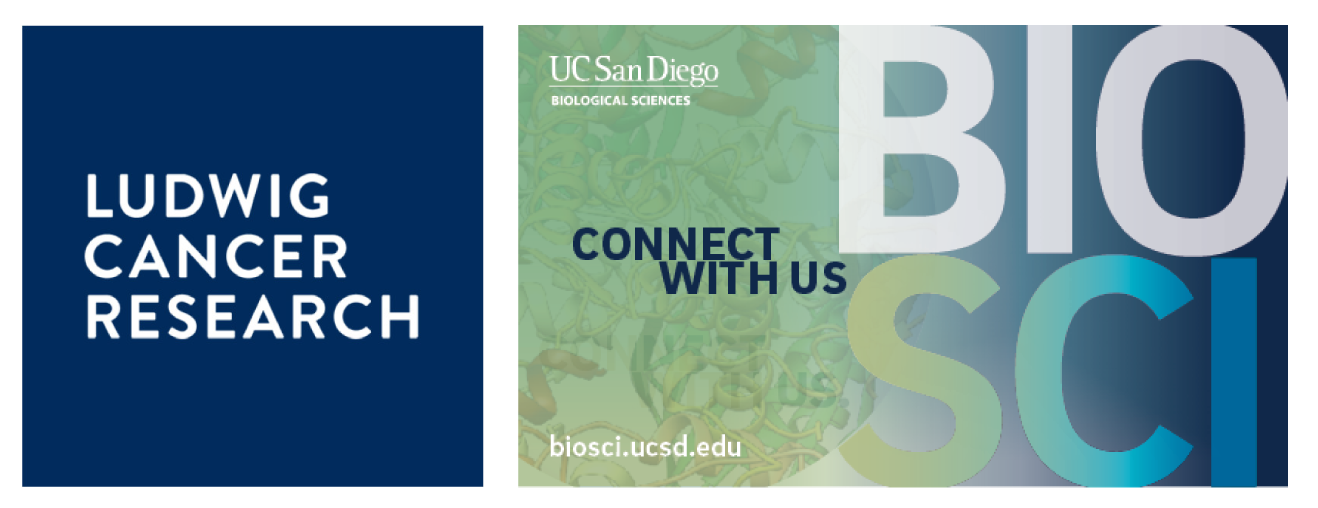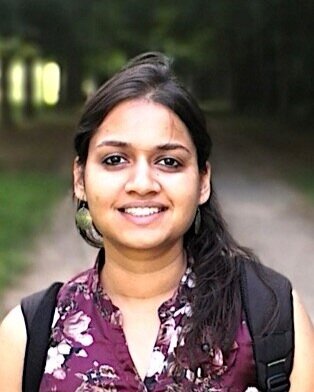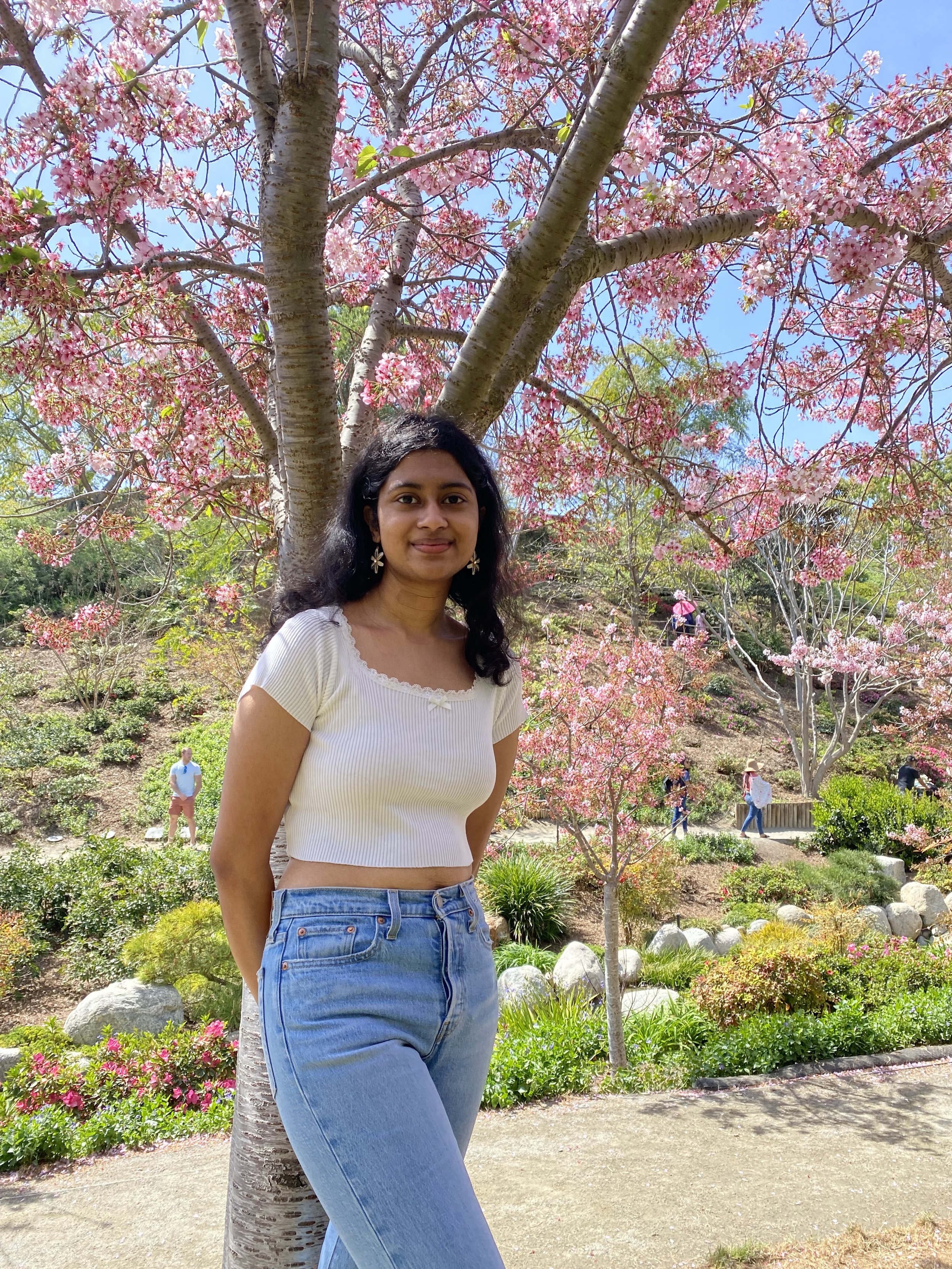Samuel Altshuler, graduate student
Sam is from St. Paul, Minnesota and earned a BS in Bioinformatics and Molecular Biology from Rensselaer Polytechnic Institute in 2020. He is pursuing a PhD in Biological Sciences as a member of the Desai Lab and his work focuses on BET bromodomain proteins and their role in the progression of human cells through the G2 phase of the cell cycle.
Email: saltshuler@ucsd.edu
Amanda brambila, postdoc
Amanda grew up in Tijuana, Mexico, and upon finishing high school in Mexico, decided to attend Southwestern community college in Chula Vista, Ca. She then transferred to San Diego State University where she earned her B.S in Biochemistry. From there, she went on to obtain her PhD from the University of California Santa Cruz working with Doug Kellogg. There she wanted to understand the mechanisms that coordinate cell growth with cell division. Now, as a Postdoc in the Oegema Lab, Amanda is using those skills to try to understand what are the molecular mechanisms by which a ubiquitin ligase, Trim37, regulates its centrosomal substrates. Amanda is the recipient of the IRACDA Fellowship.
Email: a1brambila@ucsd.edu
REBECCA GREEN, RESEARCH SCIENTIST
Rebecca Green, Ph.D. is a Research Scientist at the Ludwig Institute for Cancer Research, San Diego, where she spearheads a high-content screening team within the Oegema laboratory to functionally map essential developmental pathways. Rebecca earned her Ph.D. at the University of California, Davis, and was an American Cancer Society postdoctoral fellow at the Ludwig Institute for Cancer Research. While Rebecca has been engaged in phenotypic screening efforts for more than a decade, she has explored different biological questions at small and large scales, using bacterial systems, model organisms and human cells throughout her scientific career. She has always been drawn to microscopy-based approaches to answering scientific questions because of its versatility, beauty, and the effectiveness of an image to communicate complex ideas.
Email: regreen@ucsd.edu
jack houston, graduate student
Jack Houston grew up in Lakeside, California, and earned a B.S. in Biochemistry at Azusa Pacific University in 2015. He worked as a research assistant at Celgene Corporation in San Diego for a year before starting in the Biomedical Sciences Program at UCSD in 2016. In the Desai lab, Jack's work focuses on using C. elegans as a model to study the spatiotemporal regulation of kinetochore assembly, particularly focusing on the spindle assembly checkpoint. Jack's work in the lab is supported by the National Science Foundation Graduate Research Fellowship Program.
Email: jmhousto@health.ucsd.edu
johnathan meaders, postdoc
Johnathan is originally from Texas and moved to The Netherlands where he earned his Bachelor of Science from Utrecht University. From there he moved to Boston, Massachusetts where he received his PhD working with David Burgess to understand how microtubule asters grow and translocate within the cell to position various organelles such as nuclei and the mitotic spindle. As a postdoc in the Desai lab, Johnathan uses the C. elegans one-cell embryo as a model to understand how spindle microtubule dynamics and attachments are regulated at kinetochores and centrosomes during cell division.
Email: jmeaders@ucsd.edu
FRANZ MEITINGER, POSTDOC
Franz is interested in understanding the molecular mechanisms that orchestrate cell division in time and space and determine cell fate. The focus of his recent work is to understand how cells sense and respond to mitotic stress to prevent mitotic errors that can lead to oncogenic transformation and tumorigenesis. This work has led to the identification of the components of a mitotic surveillance pathway that activates the tumor suppressor p53 when cells spend too long in mitosis. Franz is the recipient of a DFG fellowship.
Email: fmeitinger@health.ucsd.edu
BEATA MIERZWA, POSTDOC
Beata is exploring how mitotic mechanisms adapt to diverse challenges in different human cell types, and how epithelial and hematopoietic cells accommodate different demands for shape changes during division - with the aim to uncover unique susceptibilities for targeting of cancer cells. Beata is the recipient of EMBO and Human Frontiers Science Program fellowships.
When not in the lab, Beata combines her passion for science and art to create science art and fashion (BeataScienceArt.com).
Email: bmierzwa@health.ucsd.edu
MIDORI OHTA, POSTDOC
Midori hails from Chiba in Japan and attended Tokyo University for her Ph.D. Her research interests are understanding the molecular mechanisms of centriole duplication and centrosome assembly during cell cycle, and the mechanisms underlying centriole elimination during cell differentiation. Midori is the recipient of a fellowship from the Japan Society for the Promotion of Science.
Email: mota@health.ucsd.edu
Aleesa
Schlientz, POSTDOC
Aleesa is originally from Grand Rapids, Michigan and received her PhD from the University of Oregon, working with Bruce Bowerman on oocyte meiotic spindle assembly and polar body extrusion in C. elegans. As a postdoc in the Oegema lab, Aleesa is studying how cortical contractility is negatively regulated by the kinase Aurora A in the early C. elegans embryo and human cultured cells.
Email: aschlientz@ucsd.edu
Wanying Tian, Graduate Student
Wanying is from Bejing, China and earned a BS and MS in Biology from UCSD in 2021. She is pursuing a PhD in Biological Sciences as a member of the Oegema Lab and her work focuses on the assembly and mitotic expansion of centrosomes.
Email: wtian@ucsd.edu
Neha varshney, postdoc
Neha grew up in Delhi in India and obtained her PhD from Jawaharlal Nehru Centre for Advanced Scientific Research, Bangalore, India, under the supervision of Dr. Kaustuv Sanyal. During her PhD, she investigated the function of Aurora kinase B during cell division in two human pathogenic budding yeasts. As a postdoctoral fellow in the Desai Lab, using C. elegans embryo as a model, she is interested in understanding the contributions of protein phosphatase 1 signaling at the kinetochore during chromosome segregation. When she is not in the lab, she likes to travel, explore new places and paint in her leisure time.
Email: nevarshney@ucsd.edu
Jiawei Xu, graduate student
Jiawei grew up in Ningbo, a coastal city in East China, and received her B.S. in Biomedical Sciences from Zhejiang University in 2019. She was introduced to cell biology when working in the Nunnari Lab in UC Davis as an undergrad researcher during 2018-2019, and joined the UCSD Biology PhD Program in 2019, continuing to pursue her interest in organelle biology. Co-mentored by Karen and Arshad, Jiawei is studying acentriolar microtubule organizing centers (MTOCs) in mammalian cells.
Email: j7xu@ucsd.edu
Andrew bellaart, Research associate
Email: abellaart@ucsd.edu
Anusha chatterjee
Email: anushac2020@gmail.com
Enice Crews, LAb assistant
Email: ecrews@ucsd.edu
Maia Kirkegaard, lab assistant
Email: mkirkega@ucsd.edu
Monsserrat pallan
Email: mpallan@ucsd.edu
Smriti variyar, lab assistant
Email: svariyar@ucsd.edu


















